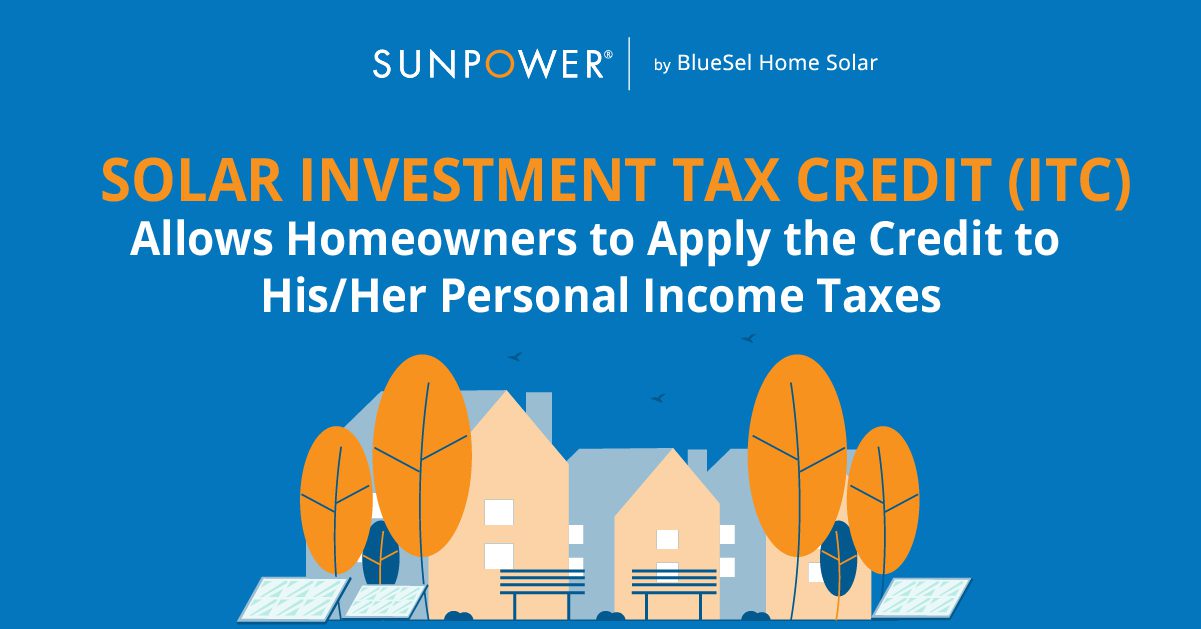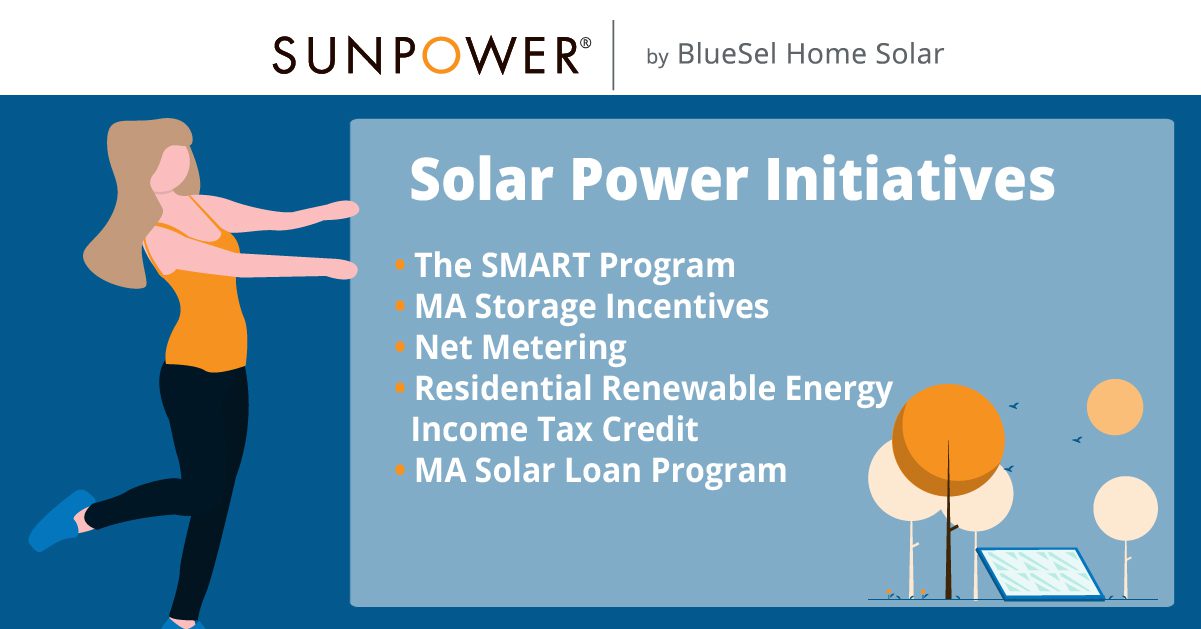
2022 Massachusetts Solar Incentives & Tax Credits
September 10, 2020Updated: February 18, 2022
The Massachusetts solar incentives and tax credits make solar energy one of the most significant (and exciting) investments you can make for yourself, your family, and your community’s future, both environmentally and financially.
Both the federal and state of Massachusetts governments recognize the importance of solar power. As such, they have designed solar incentives to help get solar panels onto more roofs across the state and country. The goal of these incentives is to help encourage future solar growth and development.
However, it’s essential to act quickly once you’ve decided to research, purchase, and install solar panels onto your home, as federal incentive percentages decline every year. There’s literally no better time in the future to invest in solar power than right now.
What is the federal Solar Investment Tax Credit (ITC)?

In 2006, the federal government introduced and put the Solar Investment Tax Credit (ITC) into motion with the hope of encouraging the growth and development of solar power nationwide.
Since then, the ITC has helped the solar industry grow by more than 10,000 percent, seeing a 50% annual growth each year. This initiative helped create thousands of jobs and stimulated the United States economy via clean, sustainable energy.
Energy.gov defines tax credits as a “dollar for dollar reduction in the amount of income tax that you otherwise would owe the federal government.”
And according to SEIA.org, “residential ITC allows the homeowner to apply the credit to his/her personal income taxes. This federal solar tax credit is used when the homeowners purchase solar systems and have them installed on their homes.”
Currently, the Solar ITC credit sits at 26 percent for residential properties through the end of 2022 (this year!). The credit will fall to 22% in 2023 and expire in 2024.
The credit can only be applied to primary or secondary residences, as well as off-site community solar projects. Also, the percentage credit applied depends on when construction begins on the solar project.
“If a homeowner buys a newly built home with solar and owns the system outright, the homeowner is eligible for the ITC the year that they move into the house. If the homeowners leases the solar system or purchases electricity from the system through a power purchase agreement (PPA), then the ITC is claimed by the company that leases the system or offers the PPA.” (source: SEIA.org)
Massachusetts Solar Power Incentives, Tax Credits, and Programs

Massachusetts has around 3,486.3MW of solar power currently installed throughout the state, ranking the Bay State as 8th in the nation.
Our state has become known for some of the best solar programs and solar initiatives available. In fact, almost 20% of Massachusetts’s electricity currently comes from solar energy, which is enough to power around 638,769 homes (an increase of nearly 140,000 from last year).
Solar Massachusetts Renewable Target (SMART)
The Solar Massachusetts Renewable Target (or SMART) program remains one of the most incentivizing and exciting solar programs put forth throughout the nation.
In conjunction with Eversource, National Grid, and Unitil, the state of Massachusetts pays customers a fixed rate per kilowatt-hour over 10-years, depending on the size of the solar system, output, and location.
In late December of 2021, the DPU (Massachusetts Department of Public Utilities) approved the expansion of the SMART Program’s capacity from 1600 to 3200 MW.
For a complete breakdown of this program and its recent expansion, be sure to visit our prior article, “What Is The Solar Massachusetts Renewable Target (SMART) Program?“.
Net Metering
In Massachusetts, both the state and local utility companies support net metering policies. Essentially, net metering allows home solar panel owners to transfer excess electricity created by their panels back to the grid in exchange for monthly billing credits. These credits never expire, rolling over into the next billing period if not used.
Here’s a great breakdown from Mass.gov. regarding how net metering billing credits work:
- If your net consumption is positive, you must pay an electricity bill to your electric company for the excess consumption at the end of the billing period. 220 CMR 18.03(4).
- If your net consumption is negative, you will receive a net metering credit on your electricity bill. Therefore, you will not owe the electric company money during that billing period. 220 CMR 18.03(3). The net metering credits appear as a dollar amount (not as kilowatt-hours) on your bill. The credits never expire and will roll over to the next billing period.
For additional information and a more detailed breakdown, please visit our article “What Is Net Metering In Massachusetts? And How Does It Work?”.
Residential Renewable Energy Income Tax Credit
The MA Residential Renewable Energy Income Tax Credit offer is perhaps one of the most straightforward solar incentives from the state. This solar tax credit allows solar panel owners to receive a 15% personal tax credit against MA state income taxes, up to a $1000 maximum incentive.
Massachusetts Storage Incentives
Massachusetts is setting itself up to be a national leader in the energy storage market with the Energy Storage Initiative, seeking to achieve a target 1,000MWh by the end of 2025.
The ConnectedSolutions Program from National Grid and Eversource is an opportunity for solar panel and storage owners to receive annual rebates provided they grant their utility company access to stored energy within the battery.
Install Solar Panels Today to Save Tomorrow
The world of energy conservation and politics moves quickly and sometimes changes without warning, as we’ve seen with the effects of the current global health crisis.
As the popularity of solar panels progresses, you’ll want to make sure that you get in early, get your perfect system installed, and reap the benefits as soon as possible.
If you have any questions about the above incentives or if you’re ready to leap into solar power, please contact us today. As one of the region’s top solar installers, we’ll make sure that your home is energy efficient, saving you time, stress, and money.


